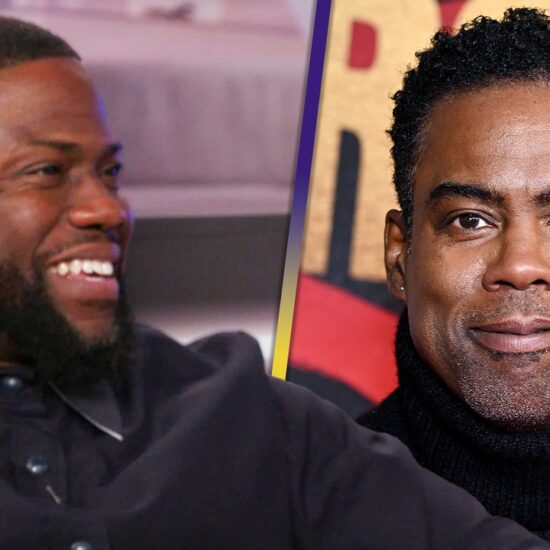
Things got heady during a Saturday IDFA Dialogue talk featuring the fest’s artistic director, Orwa Nyrabia, and IDFA Queer Day guest curator, philosopher-writer Simon(e) van Saarloos. Titled “What Gender Are Film Festivals,” the one hour discussion touched on topics including the moral force that drives and funds documentary film festivals, the people who have the power to visualize justice, and the idea that visualizing suffering will lead to betterment.
In 2013, Raul Niño Zambrano created IDFA’s Queer Day – a program of screenings, panel discussions, and performances that showcased queer documentary stories from around the world. When Zambrano left IDFA in January to serve as head of film programs at Sheffield DocFest, Nyrabia decided to bring in guest curators each year going forward to organize Queer Day. Not a fan of the program’s title, this year’s IDFA’s Queer Day is called Not Yet Yes: Queer Day by Simon(e) van Saarloos.
The multiple-hour program taking place on Nov. 14 includes films, workshops, speakers, and dancing. The festival describes it as an “attempt to counter a common documentary form in which a process of coming out is shown—from suffering in silence to being free; as if we already understand what freedom means. (Not Yet Yes) approaches film not for its story lines, but for its potential to be a physical space for wayward bodies to gather.”
“I didn’t like the title (‘Queer Day’) because of the categorical of it,” van Saarloos said. “As if through the categorical we now know which themes we are going to engage with. In some ways I’m more interested in queer as a contagious push or pull or movement. So, instead of containing queer in the Queer Day, (I wanted it) to be present in different programs. And not just in programs, as in like what are the films that we are showing, but also how are we showing? What does it mean to show? What material spaces are we showing in? How is the curatorial process even possible?”
In van Saarloos’s “Not Yet Yes” essay, which appeared in IDFA’s “Notes on a Festival” publication, they critiques the documentary field. “Even if there are zero gays on screen, even if heterosexuality flaunts as the normative background of everyone who appears in the film, most documentaries follow the format of a coming out, because the description of the closet is portrayed as the first step towards freedom. People suffer, we see, we learn. Even if the people portrayed do not get to ‘come out’ of their oppressive reality during the film itself, a promise of progress lingers, as we an audience watching – are witnessing. As viewers witness suffering and oppression with a feeling of future potential: us watching, means us learning. Us learning, means us knowing. Us knowing will mean change. The moral force that drives and funds a documentary film festival is a belief in visibility; if we see, we know. If we know, change can happen. Sadly, this inseparability of knowledge and progress is a colonial project.”
During Saturday’s discussion, van Saarloos brought up Nyrabia’s decision to concentrate on a career in documentary as opposed to fictional cinema due to money.
“As a lover of cinema, I certainly do not see walls between fiction and documentary,” said Nyrabia. “I think it is a continuous, very fluid space that can be here, there, and anywhere in the middle, but when I was 23, I was an actor working in fiction, and there was a moment when I really stared into the eye of this business, and I saw exactly how it could go. I imagined me in a few years, and I hated him. I didn’t like him. It was not what I wanted.”
Nyrabia’s solution to his future problematic self was documentaries.
“I love the people who work in documentaries,” he said. “They are nice people. Accessible people. They are down to earth, and they care. It’s not about agents, prestige, and pretension. That doesn’t change the fact that those pretentious snobs can make some of the greatest works in the world. Absolutely, they can. I just don’t like to live with them.”
Eventually, Nyrabia discovered how to continue in the business of cinema.
“There is a certain slavery to the economy of film that is always ruled or governed by this relativity (to money),” he said. “The less money you want, the more you can be yourself. The more money you want, the less you can be yourself. So, it’s just about trying always to find a sweet spot where you’re not dying of hunger, and at the same time, you’re still proud of being yourself.”
As for the question of what gender do film festivals fall under? Nyrabia sees them as patriarchal.
“In a way, I do think festivals are very powerful institutions in our film world, and this power is commonly abused,” he said. “Similarly to many questions of patriarchy and different kinds of so-called unconscious racism or unconscious bias – I think the ‘un’ here is very questionable – but still we are living in a paradigm that is so immersive that we do not see how problematic our daily procedure and our own practices are. We think this is what it is, and it’s fine. But if we can take a step out and look at it, it’s not fine. We take our authority over tastes, over filmmakers, over audience, over the films we have and our own discourse with so much automation that comes from a paradigm that we do not design, that we just fit into.”













